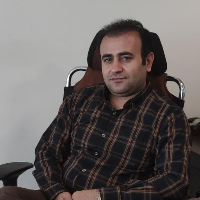Incidence and Factors Related to Stroke in the Month before, during and after Fasting in Iran
Author(s):
Article Type:
Research/Original Article (دارای رتبه معتبر)
Abstract:
Introduction
The month of "Ramadan" is a remarkable instance of strong influences of culture and religion in Iranian people's behaviors and habits. Studies have reported different results in the rate of incidence, hospitalizations, time pattern and risk factors affecting stroke during fasting. This study was conducted with the aim of determining the incidence and factors related to stroke in the month before, during and after fasting in Yasuj, Iran. Methods
This retrospective cross-sectional study was conducted on stroke patients referred to Yasuj hospitals, Iran from January 2018 to December 2020 (Shaban, Ramadan and Shawwal 1443 AH). Complete medical records of 40 stroke patients with inpatient records were used. Stroke cases were separated by month, based on age, gender and other risk factors, as well as the time of incidence of stroke. Data were analyzed using SPSS v.28 software. Results
According to the findings of this study, 23 patients (57.5%) were male and 17 patients (42.5%) were female. The number of hospitalized patients with stroke in the months of Shaban, Ramadan and Shawwal were 12, 12 and 13 respectively. No significant correlation was observed in terms of the incidence of stroke during the month of Ramadan and other two months. In addition, there was no any significant difference between different months in terms of the studied variables (stroke history, cardiovascular diseases, hypertension, hyperlipidemia, and smoking). Conclusion
This study indicated that fasting in Ramadan does not increase the incidence of stroke. Proper medical advice can significantly prevent strokes during Ramadan.Keywords:
Language:
English
Published:
Journal of Nutrition, Fasting and Health, Volume:12 Issue: 2, Spring 2024
Pages:
123 to 128
https://magiran.com/p2734450
مقالات دیگری از این نویسنده (گان)
-
Out-of-Pocket Health Expenditure and Factors Affecting Them in Breast Cancer Patients in Iran
Leila Manzouri, Esmaeil Alizadeh, Maryam Seyed-Nezhad, Mohammad Akbari, Mohammad Moradi-Joo
International Journal of Cancer Management, Dec 2024 -
Economic Evaluation of Neoadjuvant Treatment Strategies for HER2 Positive Breast Cancer: A Systematic Review
Mohammad Akbari, Maryam Seyednezhad, Saeed Heidari, Mohammad Moradi-Joo *
International Journal of Cancer Management, Dec 2023



